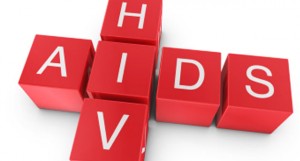HIV has Become Stronger
Saturday, May 31st, 2014 8:14:55 by Khalil Khan
HIV is stronger and can mutate. This is the main conclusion of the researchers have reached at the AIDS Research Institute IrsiCaixa, driven by Obra Social La Caixa and the Department of Health of the Generalitat de Catalunya, after associating the most aggressive virus variants with rapid development disease of AIDS.
The research results, published Friday in the journal AIDS, demonstrate that these aggressive variants of HIV are adapted to the most common genetic profiles of the population, which limits the response of the immune system and therefore favors rapid progression of HIV infection to AIDS. These data explain the evolution of the HIV in Europe, affecting 35.3 million people worldwide according to the World Health Organization even though between 2001 and 2012 transfers were reduced by 33 %, according UNAIDS. “We observed that HIV is getting slowly stronger. It is necessary to insist on the prevention of HIV infection, and facilitate early detection and rapid access to treatment, ” the study authors have indicated.
The first cases of AIDS occurred in the early 80s. After decades of research, and although there is still no cure for HIV infection, antiretroviral therapy has proven highly effective, helping to increase both hope and the quality of life of people with HIV. Around 9.7 million people were receiving treatment with these drugs in 2012, according to WHO, but there are over 19 million more than they need and do not have access to it.
HIV infection can become chronic, if it is detected early, there is access to treatment and good adhesion (which follow the patient appropriately). However, some groups of patients respond to treatment differently than usual way and in an unusually rapid progression after HIV infection resulting in the development of AIDS, which can cause serious health complications affected. In a previous study by the same foundation in 2011, 8% of patients with HIV infection date rapid progression had known before the end of third year since it became infected. This time, researchers have found that more than half of these patients developed rapid progression before even the first year after infection.
Study investigators are trying to determine what features of HIV and what features of the immune system of these people influence containment or disease progression. What they found are some common features in the most aggressive HIV variants that are capable of infecting more different cell types: spread and mutate faster so that they become invisible to the immune system, preventing develop a response early and effective.
One of the major difficulties to certify a case of rapid progression is to determine when the transmission of the virus occurred, which is usually difficult. Furthermore, there is no evidence yet to allow a priori finding being at one of these cases. The search key to identify these aggressive variants for early diagnosis of rapid progression is the line of research that continue to work the experts who prepared the report. This will facilitate start treatment as soon as possible and improve the weak treatment response observed in these patients.
The authors suspect that the virus will replicate and mutate in people who ignore be infected and therefore are not in treatment, or those who despite being infected do not follow the treatment properly. These conditions facilitate transmission of the virus and, if genetically similar people, favor the adaptation to the new HIV infected individual, it would be unable to control the infection system. “The aggressiveness of these HIV variants is due to the fact that the virus infecting these people was already adapted to their immune response,” said researcher Julia Garcia -Prado, author of the report.
Short URL: https://www.newspakistan.pk/?p=44709

















